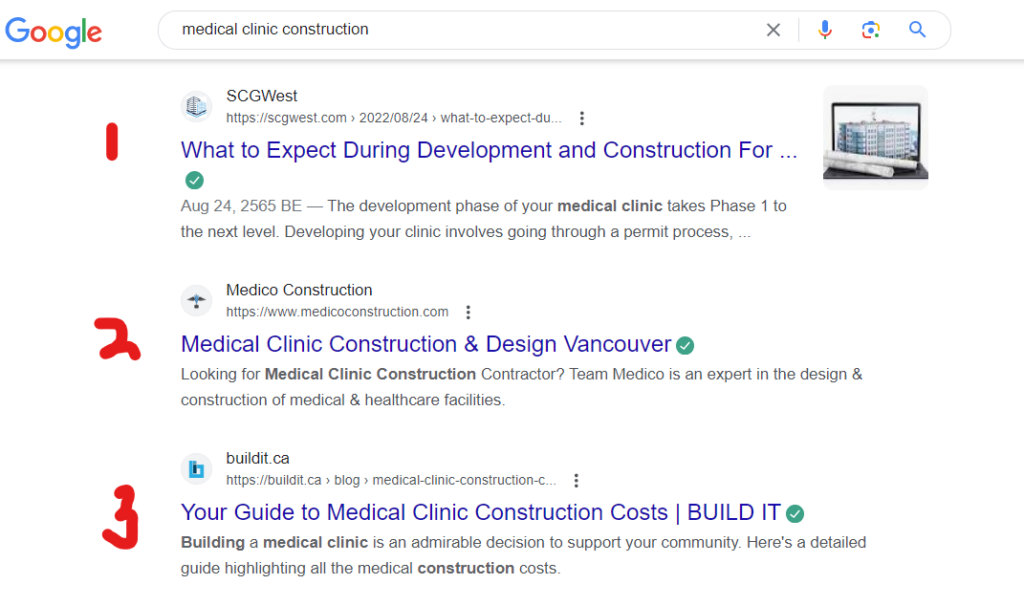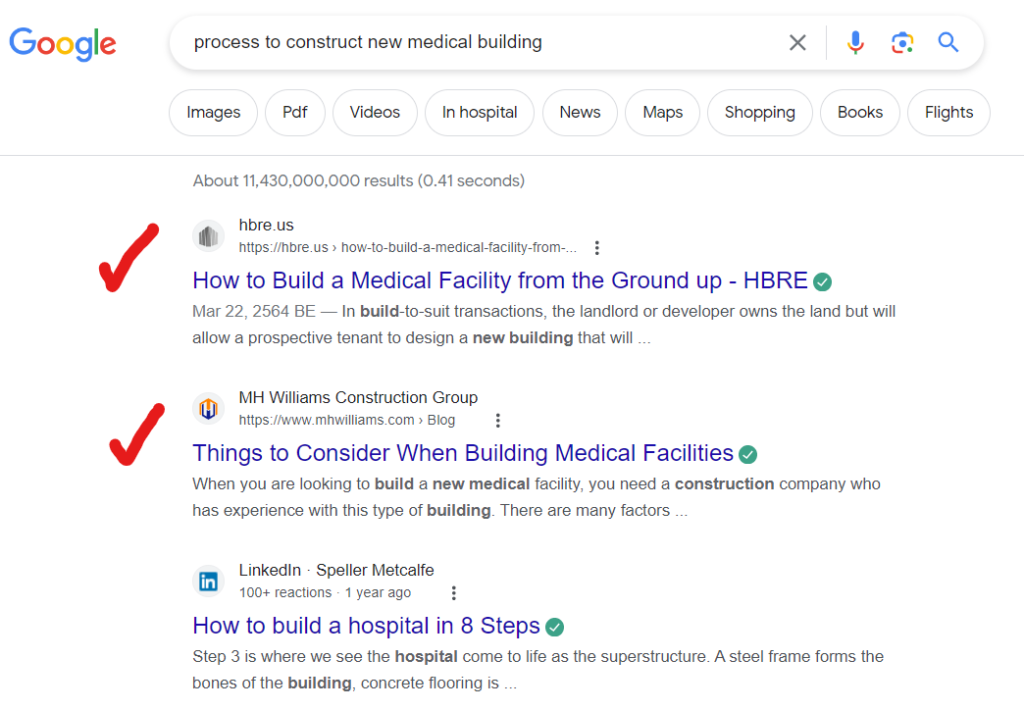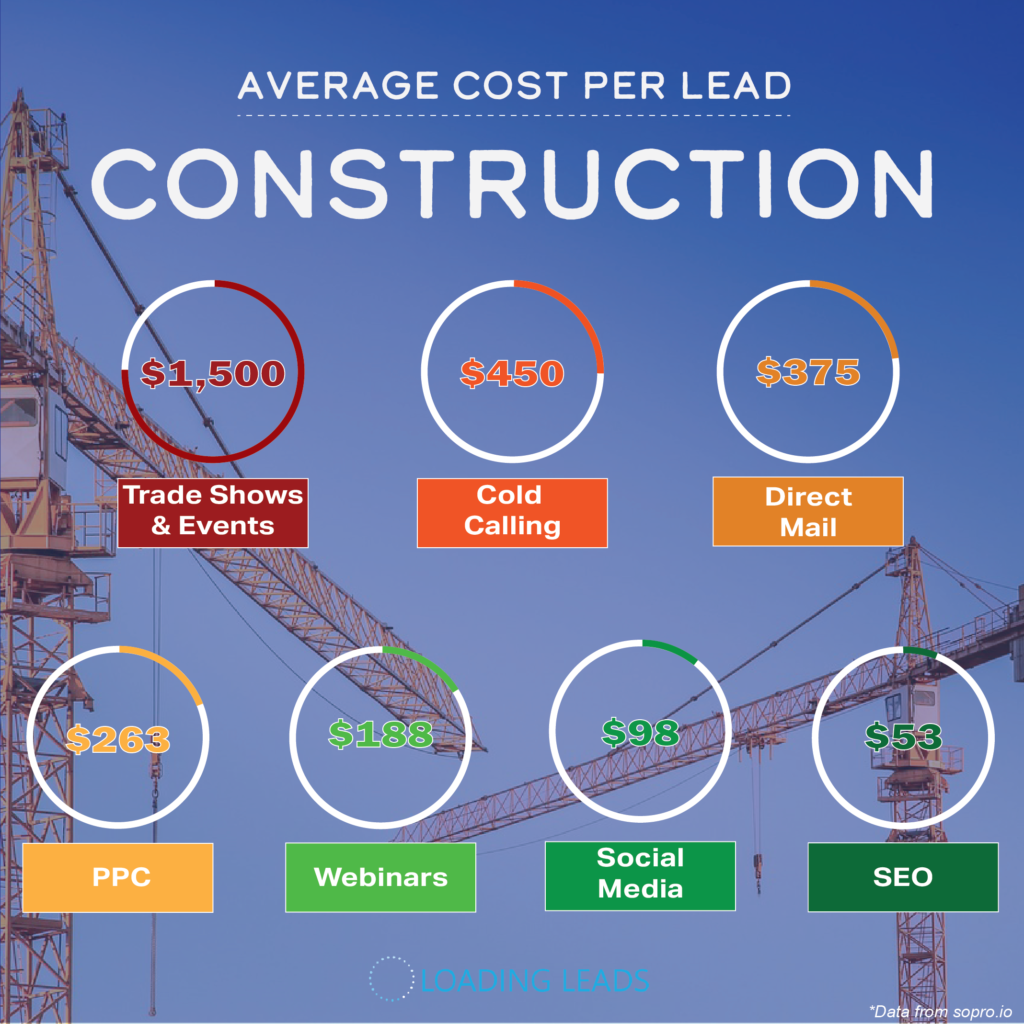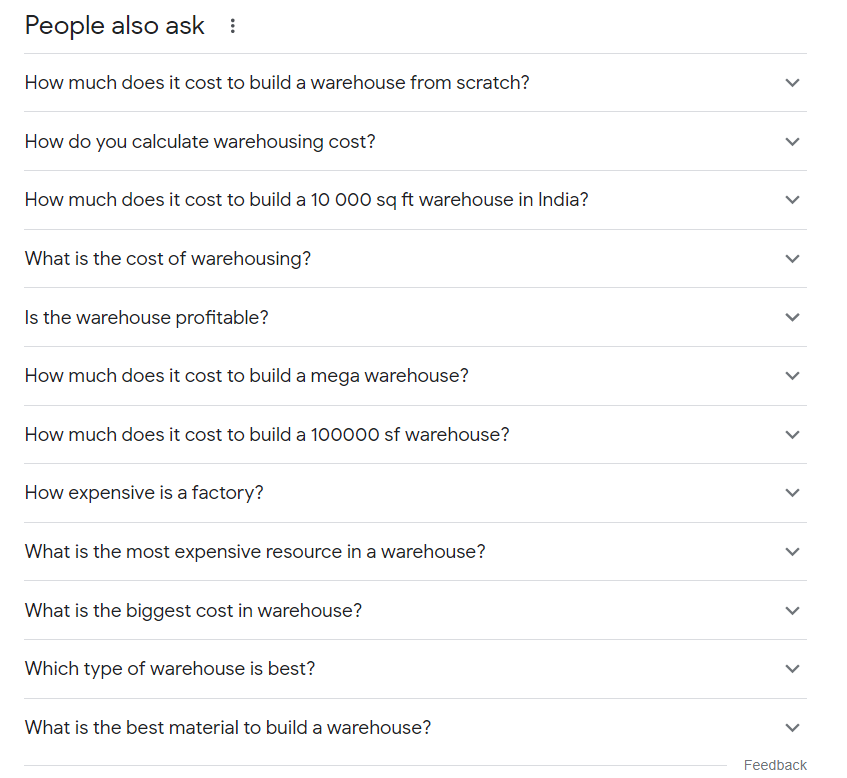There are 67,588 commercial construction companies in the United States alone as of 2023. That means a lot of competition amongst them for the big-ticket jobs. As competition within the industry heightens, so must the marketing strategies of businesses within this sector. Reputation alone is no longer sufficient; a robust online presence has become a necessity for growth, and for some, just to stay afloat. In this digital generation, where decisions are often influenced by online research, commercial construction companies, like yours, are presented with a unique opportunity to leverage the power of Search Engine Optimization (SEO) for lead generation through their websites.
Changing Dynamics in the Commercial Construction Industry
The commercial construction industry, once defined by blueprints and bricks, is now navigating a digital revolution as we move deeper into the 2020s. The ways in which businesses secure contracts, engage with clients, and build their reputations are being reshaped by the evolving expectations of a tech-savvy clientele. It’s not just about the quality of your craftsmanship; it’s about how effectively you showcase it online.
Your online presence is not a mere addition to your business strategy—it’s a cornerstone. Clients and partners are increasingly turning to the internet to seek out construction services, assess capabilities, and make informed decisions. As a construction company owner or marketing professional, understanding the nuances of this online imperative is key to staying relevant and competitive.
The Power of SEO within Construction
Enter Search Engine Optimization (SEO)—the unsung hero of your marketing strategy. SEO isn’t just about ranking higher on search engine results; it’s a comprehensive strategy that can revolutionize the way your construction company connects with its audience.
SEO is not a mystical process; it’s a calculated and data-driven approach to enhancing your online visibility. In an era where the majority of business decisions start with an online search, ranking higher on search engines can be the game-changer your company needs. It’s not just about being found; it’s about being found by the right people at the right time.
Driving Visibility and Growth
SEO isn’t a one-size-fits-all solution. It’s a tailored strategy that aligns with the unique aspects of your construction business. By optimizing your website, content, and online presence, you’re not just investing in visibility; you’re investing in growth.
Imagine potential clients searching for commercial construction services and finding your company at the top of the results. That’s not just visibility; that’s a powerful first impression. SEO ensures that your online storefront—your website—is not just aesthetically pleasing but also strategically positioned to attract and convert visitors into clients. It’s your 24/7 salesperson, so why not give it the tools it needs to succeed?
SEO Example #1

If you build medical buildings, 70 people per month, or 840 per year make this search on Google. If just one of those 840 people saw your website and reached out, wouldn’t that be worth having content on your website that ranks in the top three positions on Google for it? Think about it.
Benefits of SEO for Commercial Construction Companies
The primary benefits of SEO are improved keyword rankings, equaling more visibility online, ability to target the right customers, improving your reputation with the industry, and the ability to drive a strong ROI (and track it). Let’s explore these a bit more.
Improved Online Visibility
Enhancing search engine rankings is the primary benefit most people think of when they think of SEO, and for commercial construction companies, it translates to improved online visibility. Imagine potential clients searching for construction services, and your company appears prominently on the first page of search engine results. This visibility not only increases brand awareness but also positions your business as a credible player in the industry.
Moreover, the increased visibility leads to a surge in organic traffic to your website. Unlike paid advertising, organic traffic is driven by genuine interest, making it a valuable source of potential clients actively seeking construction services. This influx of organic traffic lays the foundation for sustained growth and client acquisition.
Targeted Lead Generation
SEO isn’t just about attracting any traffic; it’s about drawing in the right audience—those actively seeking construction services. Through strategic keyword optimization, your website becomes a magnet for potential clients in the early stages of decision-making. These are individuals with a specific intent, and your SEO efforts ensure that your business is their go-to solution.
Nurturing these leads is the next crucial step. Strategic content marketing plays a pivotal role in guiding potential clients through the decision-making process. By providing informative and engaging content, you not only showcase your expertise but also build trust with your audience. This trust forms the bedrock of lasting client relationships.
SEO Example #2

The bidding and selection process for a major commercial construction job can take months, if not years. During that time decision makers will be doing their homework on their process. Be sure your company shows up during these searches.
Building Credibility and Trust
In commercial construction, credibility is currency. SEO goes beyond visibility and lead generation; it’s about establishing authority in the industry. When your business consistently appears in relevant search results, it sends a powerful message to potential clients—you are a trusted and authoritative player in the commercial construction space.
Positive online reviews and testimonials further solidify this trust. SEO not only brings in potential clients but also facilitates their journey from consideration to decision by showcasing the positive experiences of past clients. Building this credibility not only enhances your online reputation but also fosters a sense of trust that is invaluable in the world of commercial construction.
ROI and Value of SEO
Arguably the biggest benefit of SEO is the return on investment (ROI). In construction, contracts can be worth tens of thousands of dollars all the way up to hundreds of millions. This means that each lead that comes to the website is worth A LOT of money! With SEO, every metric is measurable, so we will know how many customers were driven to the website via the SEO efforts, meaning that when a lead comes in, we will be able to attribute it to SEO or the appropriate channel it came from. If that lead turns into a sale or contract, we can put an ROI on the SEO effort, which will likely be very high.
Cost-per-lead in the construction industry can be quite high. There is data that actually tells us how high, and SEO is at the bottom when it comes to cost-per-lead at a mere $53 per lead, which is insanely cheap!

For example, most construction companies who take SEO seriously spend between $20,000 and $60,000 per year on SEO work. If your company is spending $20k per year on SEO, and one contract is driven from the marketing initiative over the course of the entire year (which is extremely likely), then your ROI could be 1,000+% easily.
Billboards, radio ads, and magazine publications will not give you this type of transparency into the metrics, which makes it very difficult on marketing professionals to prove the value of these traditional marketing channels.
Proven SEO Strategies That Work in Construction
All these benefits sound great in theory, but how do you actually rank higher on Google and drive these massive ROI numbers? Well, it takes a bit of grunt work and strategy to get there. Here is how professional SEOs tackle this:
Keyword Research and Strategy
Identifying Relevant Keywords:
Effective keyword research forms the foundation of any successful SEO strategy. In the construction industry, understanding the specific language and phrases potential clients use in their searches is crucial. Start by identifying relevant keywords related to your services, such as “marine construction services,” “industrial warehouse construction,” or “power plant rebuild.”
Tools like Google Keyword Planner, SEMrush, or Ahrefs can provide valuable insights into search volume, competition, and variations of your chosen keywords. Pay attention to long-tail keywords as well; these are more specific phrases that often indicate higher user intent, such as “LEED-certified commercial construction” or “sustainable building practices.”
Strategic Keyword Placement:
Once you’ve identified your target keywords, strategically incorporate them into your website’s content. Optimize titles, meta descriptions, and header tags with these keywords to signal to search engines that your content is relevant to users’ queries. Ensure that your content remains natural and user-friendly while seamlessly integrating these keywords.
SEO Example #3

Consider creating dedicated landing pages for specific services or locations. This targeted approach allows you to tailor content to meet the unique needs and search intent of your audience. The example above displays this perfectly.
Content Development
Creating Informative and Engaging Content:
There is a saying in digital marketing, “content is king”, and for construction SEO, content plays a pivotal role in showcasing expertise and attracting your target audience. Develop informative and engaging content that not only highlights your construction projects but also educates and addresses the needs of your potential clients.
Consider creating high-quality copywriting on your site such as blog posts, articles, and case studies that delve into different aspects of the construction industry. This content not only serves as a resource for your audience but also provides opportunities to naturally incorporate your target keywords.
Leveraging Blog Posts, Articles, and Case Studies:
Blog posts are an excellent platform to explore industry trends, share project updates, and provide tips related to construction. Articles can dive deeper into specific topics, demonstrating thought leadership within your niche. Case studies, in particular, are powerful tools to showcase your success stories, detailing the challenges faced, solutions implemented, and outcomes achieved.
As you develop content, keep in mind the intent of your audience. What questions are they likely to have during the decision-making process? Answering these questions through your content not only positions your company as an authority but also helps in attracting and retaining potential clients.
SEO Example #4

Coming up with topic ideas can be tricky, but Google offers us a great resource with the “People Also Ask” section. Consider writing blog posts or creating videos that answer these questions.
Link Building
Claiming Local Listings and Optimizing Google My Business:
For local businesses looking to attract clients in specific geographic areas, having a Google My Business page is crucial. Claim and optimize your Google My Business listing with accurate information about your services, location, and contact details. Encourage satisfied clients to leave positive reviews, as these contribute to building credibility and trust.
Generating Local Backlinks and Citations:
Local link building is key for enhancing your online presence within your community. Actively seek opportunities to secure backlinks from local business directories, industry associations, and community websites. These backlinks signal to search engines that your construction business is a reputable and integral part of the local ecosystem.
Citations, which are online mentions of your business name, address, and phone number, also play a role in local SEO. Consistent and accurate citations across various online platforms help search engines verify your business information, further boosting your local search visibility.
Strategic Backlink Outreach:
Beyond local link building, strategic outreach to authoritative websites in the construction or related industries can significantly impact your SEO. Develop valuable and shareable content that other websites would want to link to. This could include whitepapers, infographics, or insightful industry analyses. Building relationships with influencers, industry publications, and complementary businesses can open doors for guest posting opportunities and collaborative link-building efforts.
How to Implement an Effective SEO Strategy
The honest answer for most small-to-medium sized construction companies is you need to find a partner. Unless you have the resources for an in-house digital marketing team (which would cost well over $200,000 per year), then you need to outsource your digital marketing work.
Loading Leads Marketing was designed to give construction companies and industrial businesses a voice online. We are here as a resource for construction companies to not only provide a service, but to educate on the best ways to leverage construction digital marketing for an ROI. Contact us to learn more about how SEO can change your business for the better.



